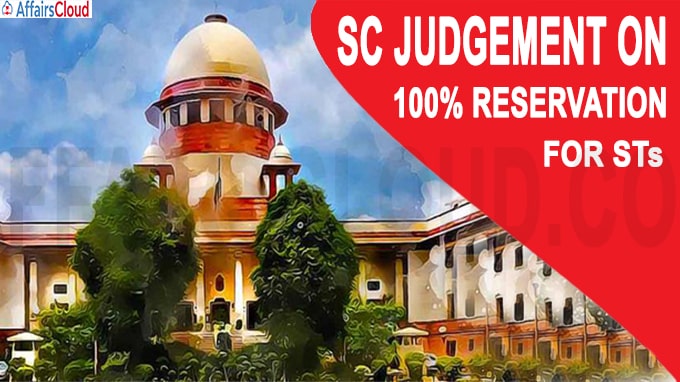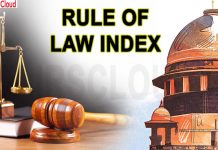Table of Contents
- Brief Overview
- Case Background
- Reasoning behind State Govt Decision
- SC’s Reasoning
- Remarks given by the SC Bench
Brief Overview
- On April 22, The Supreme Court of India had quashed a January 2000 order of the erstwhile state of Andhra Pradesh.
- The order provided 100% reservation to Scheduled Tribe (ST) candidates for the post of teachers in schools in the scheduled areas within the erstwhile state.
Background of the Case
The case originated from an appeal against the order issued by the Erstwhile State of Andhra Pradesh on Jan 10, 2000.
The Andhra Pradesh High court Bench upheld a state government order that provided 100% reservation to the members of the Scheduled Tribe section, with 33.33% internal reservation for women, for the post of teachers, in schools located in the Scheduled Areas of the State.
The Supreme Court Bench led by Justice Arun Mishra in its judgment said it was an “obnoxious idea” to have only Tribals teach Tribals.
A five-judge Constitution Bench of the Supreme Court held it unconstitutional to provide 100% reservation for tribal teachers in schools located in Scheduled Areas across the country.
Reasoning Behind State Government’s Decision
- Chronic absenteeism was observed among teachers who did not belong to those remote scheduled areas where the schools were located.
- The State government’s original orders of 1986, and the subsequent order in 2000, were an attempt to address this.
- The Governor of then undivided Andhra Pradesh had passed the order under the citation of Schedule V of the constitution which provides for administration of Scheduled Areas
SC’s arguments and Reasoning
Andhra Pradesh has a local area system of recruitment. Since Article 371D (provides Special provisions with respect to the state of Andhra Pradesh) applied to the order hence, resident of district/zone cannot apply to another district/zone for appointment.
The 100% reservation thus affected other candidates, including members of SC and OBCs but also other ST communities not native to those areas.
The Supreme court thus concluded that the order was unconstitutional and noted that it violated Articles 14, 15(1) and 16 of the Constitution.
Remarks and Suggestions by the SC:
The court held that 100% reservation is discriminatory and impermissible.
It remarked that the opportunity of public employment is not an exclusive privilege of a few.
The court referred to the Indira Sawhney judgment (1993), which caps reservation at 50%.
The court noted the move of drafting only members of the local tribes was not a viable solution to teachers’ absenteeism. It noted that the government could have come up with other incentives to ensure the attendance of teachers.
Recruitments so far under the Reservation
- The court however decided to not quash the appointments to the posts made since 1986.
- This was done on the condition that the states of Andhra Pradesh and Telangana would not attempt to bring in a similar quota in the future.
———————————————————————————————————————————–
Scheduled Areas are areas in India with a preponderance of tribal population subject to a special governance mechanism wherein the Union government plays a direct role in safeguarding cultural and economic interests of scheduled tribes in the area.
The authority to create and administer Scheduled Areas stems from the Fifth and Sixth Schedules of the Constitution of India.
FIFTH SCHEDULE
[Article 244(1)]
Provisions as to the Administration and Control of Scheduled Areas and Scheduled Tribes
- Law applicable to Scheduled Areas.
(1) Notwithstanding anything in this Constitution, the Governor may by public notification direct that any particular Act of Parliament or of the Legislature of the State shall not apply to a Scheduled Area or any part thereof in the State or shall apply to a Scheduled Area or any part thereof in the State subject to such exceptions and modifications as he may specify in the notification and any direction given under this sub-paragraph may be given so as to have retrospective effect.
—————————————————————————————————————————–





